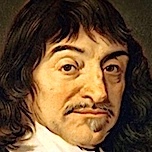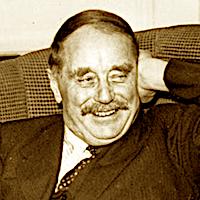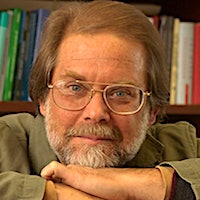

Tao Te Ching

René Descartes
1596 – 1650 CE
Though remaining a Catholic, solidifying the dualistic view in Western thought as well as “Cogito ergo sum” belief in a separate self; Descartes emphasized methodic doubt and the impossibility of externally based intellectual certainty undermining faith in belief and Church doctrine. This sparked a thought revolution that created the modern era. He developed analytic geometry (using x, y, and z for unknowns) and using superscripts for powers or exponents, discovered the law of reflection, and the basis for the development of calculus. Known as the “father of modern philosophy,” he changed the course of Western philosophy and his influence continues to this day.
Eras
Unlisted Sources
Rules for the Direction of the Mind
Quotes by René Descartes (12 quotes)
“Begin philosophy by doubting everything.”
Chapters:
65. Simplicity: the Hidden Power of Goodness
Comments: Click to comment
“I find not a single property which with certainty separates the waking state from the dream. How can you be certain that your whole life is not a dream?”
Chapters:
13. Honor and Disgrace
Comments: Click to comment
“Nothing is more fairly distributed than common sense: no one thinks he needs more of it than he already has.”
Chapters:
21. Following Empty Heart
Comments: Click to comment
“Learn less, contemplate more.”
Chapters:
26. The Still Rule the Restless
Comments: Click to comment
“If you would be a real seeker after truth, at least once in your life doubt all things.”
Chapters:
17. True Leaders
Comments: Click to comment
“I made every mistake that can be made but I just kept pushing.”
Chapters:
43. No Effort, No Trace
Comments: Click to comment
“A state is better governed which has few laws, and those laws strictly observed.”
Comments: Click to comment
“All good things are difficult to achieve but bad things are very easy to get.”
Comments: Click to comment
“The first remedy or prevention of revolt and sedition to to remove by all means possible want and poverty.”
Comments: Click to comment
“The end of study should be to direct the mind towards the enunciation of sound and correct judgments on all matters that come before it.”
from Rules for the Direction of the Mind
Comments: Click to comment
“To study the writings of the ancients is right, because it is a great boon for us to be able to make use of the labors of so many men... But yet there is a great danger lest in a too absorbed study of these works we should become infected with their errors”
from Rules for the Direction of the Mind
Comments: Click to comment
“So blind is the curiosity by which mortals are possessed, that they often conduct their minds along unexplored routes, having no reason to hope for success... unregulated inquiries and confused reflections of this kind only confound the natural light and blind our mental powers.”
from Rules for the Direction of the Mind
Comments: Click to comment
Quotes about René Descartes (5 quotes)

“Decartes, the greatest of French philosophers... is the central and dominant figure of a constellation of speculative minds which were active in undermining, modifying, and dwarfing the genteel Christianity of their age.”
Comments: Click to comment

“The first writer to use the term 'laws of Nature' consistently was René Descartes [who] became the foremost exponent of the new mechanical philosophy... the scientific consequence of his radical dualism”
Comments: Click to comment

“In Descartes the new struggles in the arms of the new, and never quite liberates itself.”
Comments: Click to comment

“Descartes is usually considered the founder of modern philosophy, and, I think, rightly. He is the first man of high philosophic capacity whose outlook is profoundly affected by the new physics and astronomy... he does not accept foundations laid by predecessors, but endeavors to construct a complete philosophic edifice de novo. This had not happened since Aristotle... There is a freshness about his work that is not to be found in any eminent previous philosopher since Plato... Descartes writes, not as a teacher, but as a discoverer and explorer”
Comments: Click to comment

“Descartes dated his life as a philosopher from 1619 [and] spent the remainder of his youth in traveling, 'resolved no longer to seek any other science than the knowledge of myself, or of the great book of the world.'”
Comments: Click to comment
Comments (0)